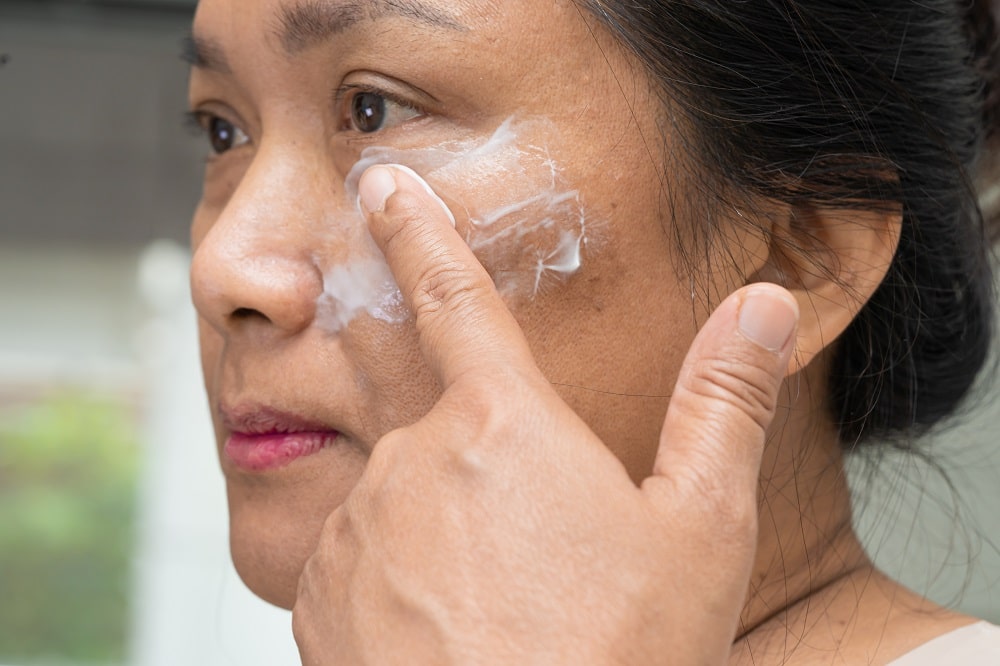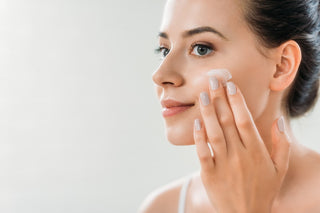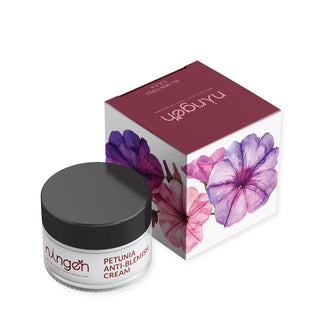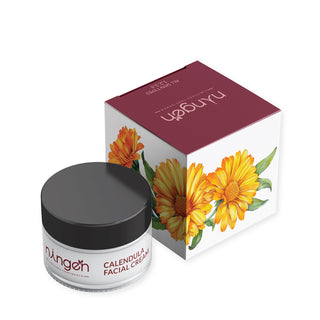Are you tired of dark spots, acne marks, dark circles and pigmentation? If you are wondering how to get flawless and beautiful skin in an easy way then you must include a petunia anti-blemish cream in your skincare routine. The fact is that our sedentary lifestyle, environmental pollutants, harsh cosmetics and fast paced life affects our skin that ultimately results in spots, blemishes and dull skin. All you need is a healthy skincare routine, healthy diet and exercise to keep all the skin issues at bay and cherish the beauty inside out.
What is a Petunia Plant?
Petunia, genus of about 35 species of flowering plants in the nightshade family (Solanaceae), native to South America. The common garden petunia (Petunia ×atkinsiana) is an ornamental plant whose showy trumpet-shaped flowers make it popular for summer flower beds and window boxes. It has therapeutic properties which work effectively on skin. Mexican petunia and blue petunia flower is quite popular.
What is blemish on the skin?
The appearance of mark, discoloration,spots or any flaw is called a blemish. There could be numerous reasons behind its occurrence right from mild to severe.

Types of Skin Blemishes
Acne
When your skin produces excess oil it leads to acne issues. overactive oil glands, hormonal changes during puberty, menstruation, or the menopause, stress, anxiety, or depression which ultimately affects hormones.
Blackheads
Blackheads are papules that could appear like small, hard, red bumps on the skin. The accumulation of excess oil, bacteria, and dead skin cells deep in the skin cells causes blackheads.
Pustules
It appears as raised, red spots that contain yellow or white pus. They occur when oil, bacteria, and dead skin cells collect under the skin, causing infection.
Whiteheads
Small, round blemishes that is white or skin-colored are whiteheads. It occurs due to accumulation of oil and dirt that clogs the skin pores.
Nodules
When your skin pores are blocked by accumulation of excess oil, dirt and dead skin cells it causes nodules. It further leads to inflammation deep within the skin.
Hyperpigmentation
It occurs due to sun damage, acne scarring or genetic factors. Too much sun exposure leads to small patches on your skin.
Melasma
Hormonal changes in your body increase the melanin production, a pigment that gives color to your skin. Besides, the overproduction of melanin turns your skin darker.
Cold sores
Red, fluid-filled blisters that form on the lips or around the mouth due to infection caused by Herpes simplex virus, they are quite contagious.

What causes blemishes?
Viruses
Some blemishes, like cold sores, are caused by viruses, such as HSV-1. The varicella-zoster virus (VZV) causes chickenpox.
Infections
A few types of infections can cause blemishes such as malassezia folliculitis. It is an infection in the hair follicles. It occurs due to overgrowth of yeast and leads to formation of pustules.
Genetics
Acne may have a genetic link. Certain hereditary conditions can also cause blemishes to occur.
Sun Exposure
Overexposure to the sun’s harmful ultraviolet (UV) A and B rays can cause skin cancer, hyperpigmentation, and other forms of skin damage.
Clogged Pores
An overproduction of oil by the sebaceous glands can cause blemishes. When excess mixes with your dead skin cells, dirt, or bacteria it clogs your pores.
Diet
What we eat reflects on our skin. Contact dermatitis and food allergies can cause irritation and bumps on your skin. Excessive sugar consumption and unhealthy diet can lead to blemishes.
How to Treat Blemishes?
Sun protection
Sunscreen, sun-protective clothing, sunglasses, and hats reduce your exposure to UVA and UVB rays. This can help protect your skin from additional damage.
Healthy hygiene habits
Regular cleansing of your face, body, and hair can help eliminate excess oil, dirt, and bacteria on the skin.
What causes and triggers blemishes on skin?
Genetics can make your skin reactive
Our skin type is determined by our genes. Some of us have more reactive skin that is prone to inflammation which causes blemishes.
Hormones can make your skin blemish prone
Hormones trigger sebaceous glands and also stimulate sebum production in those sebaceous glands and ultimately leads to blemish prone skin.
Diet can worsen your skin’s plight
Include more green vegetables and fruits in your diet. If you are consuming more dairy products and a diet with a high glycemic index it could make your skin pimple prone.
Stress affects your skin’s health
It is one of the most ignored and pivotal reasons for sebum production and acne on your skin.
Improper skincare regime creates blemishes on your skin
Try to include natural cleansers and soaps in your skin care routine to maintain skin’s natural balance. You must avoid products which clog skin pores and lead to acne issues.
Here are few Anti-blemish cream in India;
- Lotus anti-blemish cream
- Himalaya Bleminor anti-blemish cream
- Mamaearth anti-blemish cream
- Ningen Petunia Anti-Blemish Radiance Cream I Enriched with Date Palm, Coffeeberry & Pomegranate Extracts I Treats wrinkles, blemishes and stretch marks
- Jovees anti-blemish pigmentation cream










